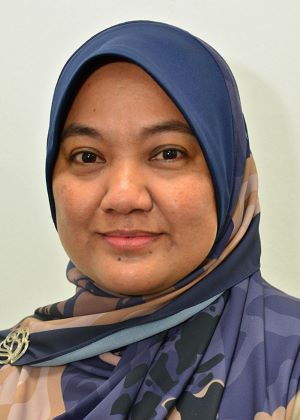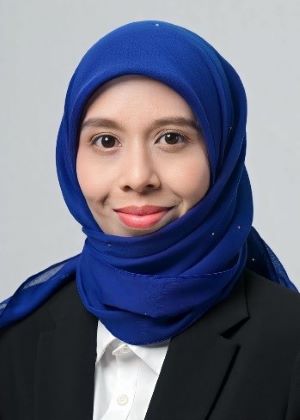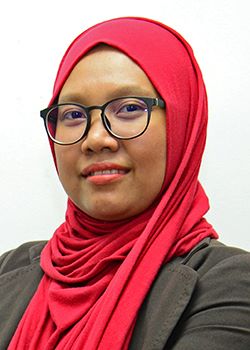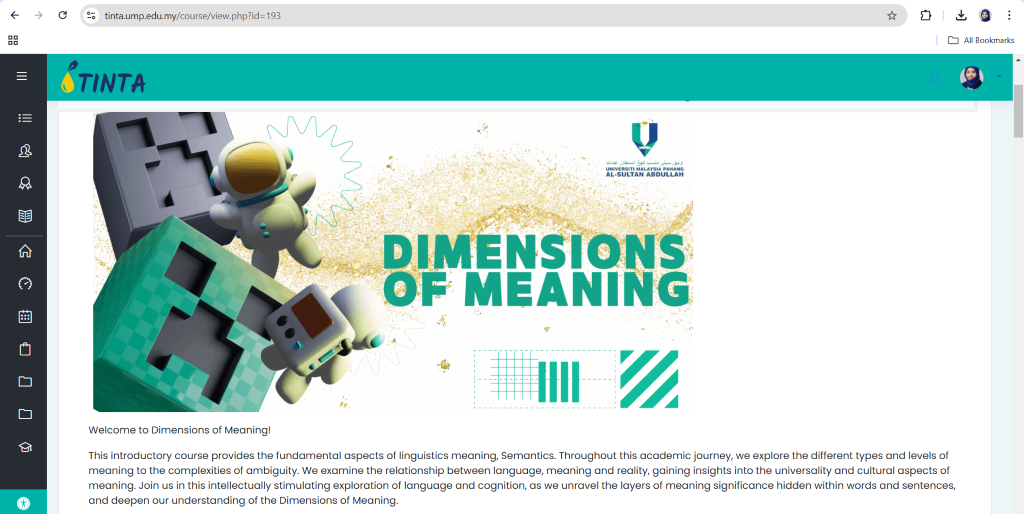CML’s Macro Leap: 20 Micro-Credentials for 2024
The Centre for Modern Languages (CML) at Universiti Malaysia Pahang Al-Sultan Abdullah (UMPSA) has distinguished itself with 20 Micro-Credentials, marking a significant milestone achieved in 2024 that commenced in 2021.
The CML has exceeded the target of eight Micro-Credentials set by the university’s e-learning initiative over three years (2021-2024), while outpacing 10 other faculties and centres. With the 20 MC modules, the centre is recognised for its substantial contribution to the overall UMPSA key performance index (KPI) for 2021-2025. By leveraging technology and modern pedagogical approaches, CML has successfully designed Micro-Credentials that cater to diverse learners, including university students, professionals, and lifelong learners seeking to enhance their language proficiency and communication skills. The success of this initiative highlights the centre’s dedication to supporting UMPSA’s vision of becoming a leading institution in e-learning and digital transformation.
Thirty-five CML subject matter experts (SMEs) collaborated, dedicating their time and effort to develop the 20 modules. The development involved systematic planning, careful deliberations, and verifications carried out by the Ministry, MQA, and UMPSA, with support from the Centre for Instructional Resources & e-Learning (CIReL). These dedicated SMEs played a crucial role in ensuring that each module met the highest academic and industry standards, aligning with national and international benchmarks for quality online education. Their commitment to innovation in teaching and learning has not only strengthened UMPSA’s reputation in digital education but also provided learners with flexible, accessible, and competency-based learning experiences. Through continuous training, content refinement, and the integration of cutting-edge pedagogical strategies, the SMEs have successfully created impactful Micro-Credentials that cater to diverse learners, from university students to working professionals seeking upskilling opportunities. The SMEs for CML 2024 MC module achievements are
Abdul Jalil Abdul Rahim
Dr. Abdullah Adnan Mohamed
Aisyah Hanum Abu Bakar
Alia Najaa Md Nor
Amy Zulaikha Mohd Ali
Arulselvi Uthayakumaran
Dr. Asiah Kassim
Azimah Ahmad Zaki
Dr. Azwin Arif Abdul Rahim
Dr. Ezihaslinda Ngah
Farah Liyana Ahmad A'azmey
Fathiah Izzati Mohamad Fadzillah
Hamizah Zahari
Hanisah Bon (Kasbon)
Khairul Bahri Abdul Samad
Mohd Shafeirul Zaman Abd Majid
Mohd Shafiq Abdul Jabar
Nabila Abdul Malek
Hajah Noor Azlinda Zainal Abidin
Associate Professor Dr. Noor Raha Mohd Radzuan
Noraisah Nurul Fatwa Mohd Razali
Nor Suhardiliana Sahar
Dr. Nor Yazi Haji Khamis
Nur Anisnabila Dianah
Nur Syafawati Sabuan
Nurkarimah Yusof
Nurul Nadia Muhammad
Rosnani Ismail
Shamsul Harbi
Siti Ainun Jariyah Hassan
Siti Noorzaimalina Abd Majid
Dr. Wan Jumani Fauzi
Wan Noor Farah Wan Shamsuddin
Zarina Mohd Ali
Associate Professor Dr. Zuraina Ali
Micro-credential programmes are typically accessed through online learning platforms and are defined as the digital confirmation of learning acquired from self-contained short courses, modules, or units, as well as from academic programmes (credited subjects). They provide learners with a flexible and accessible approach to upskilling, reskilling, and enhancing their competencies in specific subject areas. The CML MC modules range from proficiency to electives, offering structured yet adaptable learning experiences tailored to different levels of language competence. Hosted on the UMPSA e-learning platform TINTA (https://tinta.ump.edu.my), these Micro-Credentials are accessible to UMPSA students and associates, providing a seamless integration into the university’s digital learning ecosystem. The modules are
● Technical Product Presentation
● Ace Your Public: Speaking Persuasive Speech
● Power of the SOP
● Interview Skills!
● Language and Linguistics Dynamism
● Phonological Variations
● Distinction of Meanings
● Dimensions of Meaning
● Language in Context
● Speech Sounds
● International Phonetics Alphabet
● Discovering Morphology and Syntax
● Collaborative Learning using Web-based Tools
● Morphological Typology & Word Formation
● Language Tree Diagrams
● Language and Cognition
● Developing Argumentative Essays
● Language in Society
● The Basic of Becoming Fiction Writer
● Sustainability in Education
Micro-credentials will be recognised through credit transfer from an accredited programme, adhering to the maximum allowed under the Credit Transfer Guidelines for MOOCs (Massive Open Online Courses). Consequently, the development of micro-credential programmes should be grounded in outcome-based education (OBE). Implementing OBEs that integrate Student Learning Time (SLT) and assessments will facilitate the credit transfer component. The Centre for Modern Languages (CML) extends its sincere appreciation to the appointed assessors for their invaluable comments and guidance, which have been instrumental in successfully developing these modules.
Azimah Ahmad Zaki
Dr. Azwin Arif Abdul Rahim
Dr. Ezihaslinda Ngah
Dr. Mohammad Musab Azmat Ali
Hajah Noor Azlinda Zainal Abidin
Associate Professor Dr. Noor Raha Mohd Radzuan
Dr. Ruhil Amal Azmuddin
Mohd Shafeirul Zaman Abd Majid
Dr. Wan Jumani Fauzi
CML aspired to be a leading hub for innovative language education, leveraging digital learning platforms to provide accessible, flexible, and industry-relevant micro-credentials. With a vision to foster lifelong learning, the centre aims to equip learners with essential linguistic and communicative skills that meet both academic and professional demands. By integrating emerging educational technologies, collaborating with industry partners, and aligning with global standards, CML seeks to position itself as a frontrunner in language education. The centre remains committed to continuous improvement, ensuring its modules evolve alongside the dynamic landscape of education and workforce requirements.
“The achievement of developing 20 micro-credential modules within three years is a clear reflection of the dedication, expertise, and collaborative spirit of our team,” said Dr Nor Yazi Hj Khamis, Coordinator, E-Learning Unit, Centre for Modern Languages. “These modules reflect our commitment to delivering high-quality accessible language education that meets the evolving needs of our learners and the industry. Looking ahead, we will continue to innovate and expand our offerings to support lifelong learning and contribute meaningfully to UMPSA’s strategic goals.”
Moving forward, the Centre for Modern Languages (CML) aims to expand its micro-credential offerings by developing more specialized modules that cater to industry demands and emerging trends in language learning. CML is exploring opportunities to offer industry-recognized certifications, enhancing the employability of graduates and professionals who complete these courses. Additionally, the centre plans to collaborate with industries, academic institutions, and government agencies to ensure that the micro-credentials remain relevant, impactful, and aligned with national and global educational frameworks. Through these initiatives, CML continues to uphold its commitment to innovation and excellence in language education.

Lecturer, Centre for Modern Languages (CML), Universiti Malaysia Pahang Al-Sultan Abdullah (UMPSA).
E-mail: nyazi@umpsa.edu.my

Senior Language Teacher, Centre for Modern Languages (CML), Universiti Malaysia Pahang Al-Sultan Abdullah (UMPSA).
E-mail: amyzulaikha@umpsa.edu.my

Senior Language Teacher, Centre for Modern Languages (CML), Universiti Malaysia Pahang Al-Sultan Abdullah (UMPSA).
E-mail: noraisahfatwa@umpsa.edu.my
- 355 views










